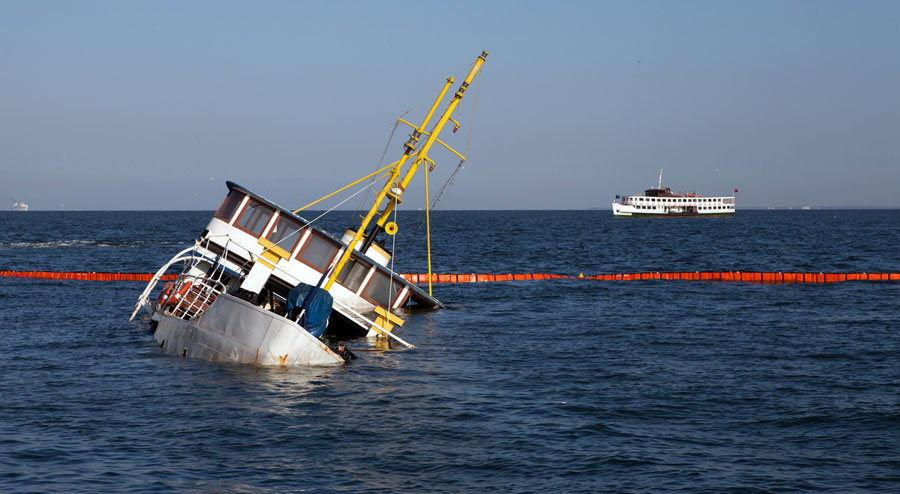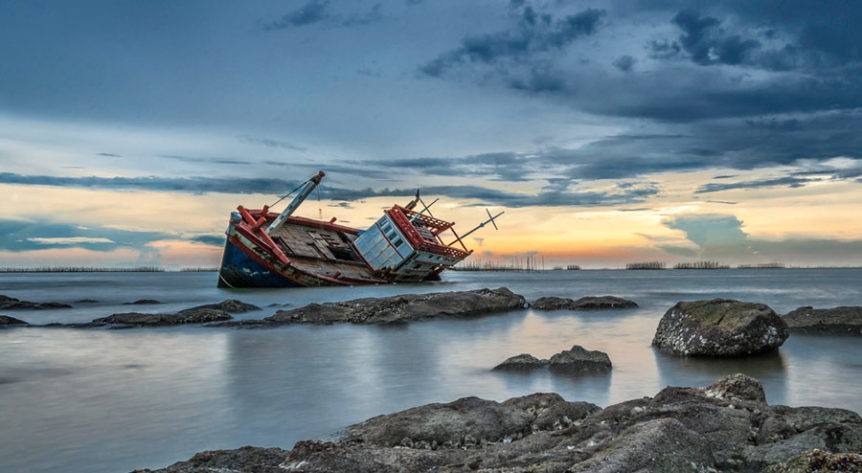Boating accidents are always super scary and super common in the deep blue. Boating and water-based accidents are actually quite common so there are laws dedicated to boats, the sea, and other forms of waterways.
Some boating accidents can’t be avoided while others are caused by simple incompetence or because someone was unfortunately under the influence of alcohol or drugs.
When an accident at sea occurs, you need more than a personal injury attorney, as you’re going to want the best boat accident attorneys helping you with your maritime case. You’re going to need someone who has specifically studied maritime law (admiralty law) and knows their way around these confusing laws. Your attorney should also have knowledge in your state’s waterway laws.
So, it’s time to go over everything you need to know about boating accident attorneys if you find yourself in an unfortunate situation.
What Is Maritime Law?
Maritime law is merely a specialty law that involves accidents and disputes involving a navigable body of water. Maritime law is considered federal law, meaning the laws cover every state in the US and accident disputes are mostly worked out in federal court.
The beginning of maritime law goes far, far, far back to the Egyptians, the Greeks, and other ancient civilizations.
Boats crossing oceans have been the primary use of transportation for exchanging goods between other countries so they had to come to terms and rules for boats, ships, and their owners.Of course, over the decades, international water laws have been adapted and changed.
Maritime laws aren’t the only laws that govern the oceans. Each state that borders a major ocean has laws of their own you must abide by when it comes to taking your boat out to sea.
When It’s Time for a Boat Accident Lawyer
Now that you know about maritime law, it’s time to learn about boat accidents and the steps you should take if you find yourself in trouble.
The Most Common Boat Accidents Covered by Maritime Law
There are several different types of boat accidents that are covered by maritime or admiralty law, with each demanding you obtain a boat accident lawyer with experience.
The most common types of boat accidents include:
- Collision between two vessels
- Collision between a vessel and a fixed object
- Vessel employee’s injury or death while working in navigable waters
- Commercial shipping accident that involves cargo damage
- Flooding of a vessel
- Maritime labor regulations
- Criminal activity
Since some states have no age limit to those that can operate a boat nor do some ship operators need a license. It varies from state to state.
This results in complicated boat accident battles between navigators since they’re not required to learn boat safety. Boat safety that could easily prevent collisions between two vessels or other types of boat accidents.
The Most Common Causes of Boat Accidents

The most common of the boat accidents we discussed above are caused by a few simple problems that could be avoided.
The most common cause of these annoying and sometimes terrible boat accidents include the following:
- Negligence or inexperience while operating a vessel
- Boating under the influence of alcohol or drugs
- Speeding while operating a vessel
- Lack of boat maintenance or machinery failure
Statutes of Limitations Involving Maritime Laws
If you want to file a case that involves maritime law, there is are Statutes of Limitations for different types of boat accidents. Statutes of Limitations are the amount of allotted time you have between the incident and filing a legal action for the incident.
The Statutes of Limitations do not include any state laws on reporting an accident or incident.
The most common maritime Statutes of Limitations involving boat accidents:
- Death on the High Sea Act: This act gives the family of a person involved in a wrongful death three years to file a legal action.
- The Jones Act: The Jones Act enables an employee involved with the transportation of goods for trade to file a personal injury claim within three years of an incident.
- Longshore Harbor and Workers’ Compensation Act: When an employee is injured on a vessel working, they have a year to file a legal action to receive workers’ compensation.
What You Should Do When a Boating Accident Occurs
If you’ve been involved in a boat accident and believe you need legal recourse involving the accident, there are steps you should take.
These important steps should include:
- First, you need to see a doctor so you can be examined. Even if you think you’re okay, see a medical professional. You’ll want a copy of your medical records (and medical bills) involving the accident and any injuries you may have sustained.
- Collect the insurance information from your employer and/or the other vessel owner involved.
- Make an official report for your employer or the vessel owner. You should also make an official report to the Coast Guard and your state’s waterway department.
- Gather evidence for your case.
Evidence that Helps Make a Boat Accident Case
For a successful boat accident case, you and your law firm or lawyer will need evidence that points to the damage done, whether it’s damage to a water vessel or injuries sustained by a person.
The evidence that you should have to support your case can include:
- Photos of the damage done
- Witness statements and the police records from the incident and negligence
- Medical records of someone’s been injured or has passed away
Boating Under the Influence of Alcohol or Drugs
Boating Under the Influence (BUI) is a maritime law that covers all states in the US. It is illegal to operate a boat under the influence of alcohol or drugs, just like it’s illegal to operate a vehicle on land while intoxicated.
Most states consider a BUI (sometimes referred to as Boating While Intoxicated) when the operator has a blood alcohol concentration (BAC) of .08 or higher.
A boat can be pulled over if it’s believed that the operator is under the influence of alcohol or drugs. If you receive a BUI, you will be in just as much trouble as if you had received a DUI while driving a car.
You can have your boating license suspended or even revoked if you’ve had several BUI offenses. There are also expensive fines you’ll have to pay. In serious cases, you can also receive drug counseling or even jail time.
Conclusion
If you’ve been in a boating accident, you want to take the right steps to protect yourself or receive compensation for damages. This includes hiring an attorney that has knowledge and experience in maritime law so you have the best representation possible.
You can get additional, specific legal guidance on your situation by filling out the boating / maritime accident questionnaire below, or chat online with a Laws 101 maritime law expert.
